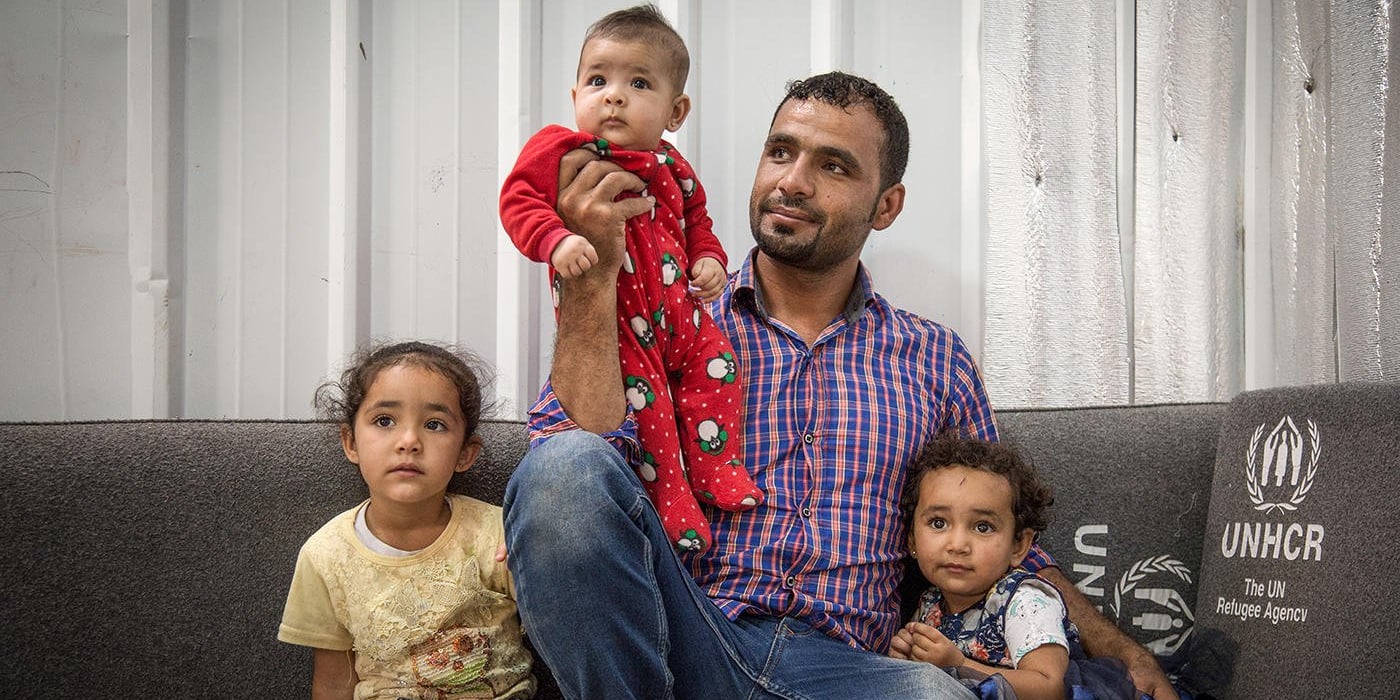
Hamad fled with his family to his parents’ house after their home in eastern Aleppo was destroyed by an airstrike. Then, they had to leave Aleppo governorate altogether in 2015 after the invasion of an armed group affiliated to the IS group.
A precarious journey
Hamad’s journey to Azraq camp with his family wasn’t easy. It took them 24 hours to travel from Aleppo to the border as they had to take a longer, more difficult route through the desert to avoid any armed groups’ checkpoints. His wife was nine months pregnant.
“It was September so it was hot and dusty,” Hamad recalls. He and his wife had to walk five kilometres to get to the Rukban border checkpoint between Syria and Jordan, also known as the berm.
“We didn’t have a tent. We had to make one with the clothes we brought with us from home,” explains Hamad. “The situation was horrific. The worst thing was to get water, queuing for more than three hours under the hot sun. Each household would then only be given one gallon of water.”
After being stuck at the border for many days, Hamad’s wife gave birth to their daughter Nada, and that is when she was sent to a hospital in Jordan nearby the border.
“We saw Nada for the first time, 20 days after her birth,” says Hamad. “Some complications happened during the birth because of the lack of medical tools and hygiene.”
Hamad’s family were settled in Azraq refugee camp after Nada was born.
Challenges and opportunities
“We were nervous at the beginning,” says Hamad. “We did not have any cash left with us. We were heading into the unknown. The first two weeks were fine, or at least better than our days in Rukban. Then we realised that our life would be more difficult without work or money.”
Hamad heard about the Norwegian Refugee Council’s (NRC) youth centre in Azraq through an NRC brochure. He visited the centre, where he signed up for the electricity training programme.
“I already had the knowledge about electricity, but it wasn’t enough,” says Hamad. “I knew the basics. I knew how to connect wires. At NRC’s centre I learned how to repair electronics. I was very excited about the training.”
After taking a three-month electricity training, Hamad is now repairing his neighbours’ electronics. He has improved his skills as an electrician.
“After these three months, I designed an air conditioning system,” says Hamad. “I used some metal scraps, a fan and a water pump. That is what it takes to build an air conditioner. I used some tools from NRC’s workshop, and that helped me very much.”
Hamad is looking forward to his next project. He is thinking about making a safe stove for winter. Hamad fears that the coming winter will be very cold in the camp with the desert climate, where temperatures can drop to sub-zero at night, and he believes that ordinary stoves are very dangerous, particularly in small confined spaces where people might suffocate in their sleep if they don’t turn off the stoves properly.


